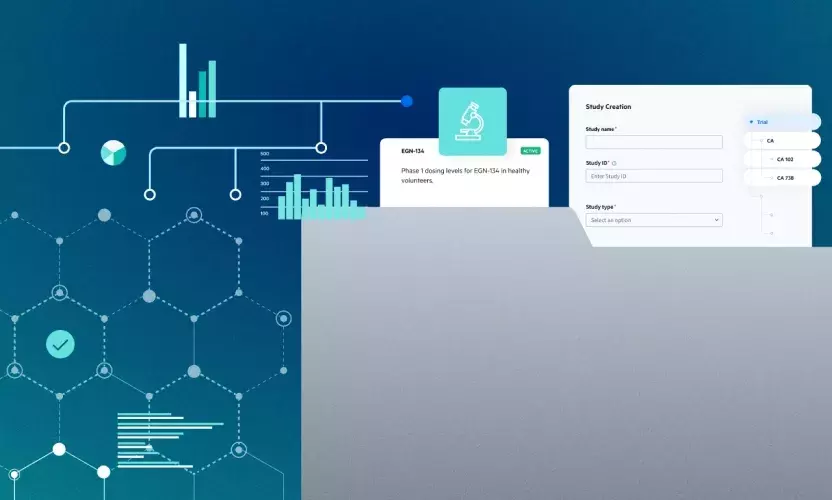
Why Your eTMF Vendor Doesn’t Want You To Know About The Exchange Mechanism Standard
Setting the Scene: Challenges With Your Trial Master File (TMF) Data
Traditionally, TMFs were immense paper files amassing all the required information and evidence for future audit. The manual collation of data and resources was time-consuming and prone to human error. Paper filing is difficult at scale, especially when some trails last more than a decade. To alleviate these issues, companies began storing their Trial Master Files in electronic formats about 14 years ago.
Today, most vendors in the TMF industry make exporting TMF data out of their system very difficult. Why would they do this? To create a moat around their software and make your attempts to change TMF software providers as irritating as possible. These vendors, including Salesforce’s spinoff, introduce several specific challenges to organizations pursuing a better TMF solution:
- Lack of Support: They do not offer a dedicated Success Manager to assist customers, leading to a cumbersome and time-consuming data transition process.
- Complex Data Export: Customers often need to send multiple emails and engage in weeks of conversation with their vendor before they are given access to download their own eTMF data, adding unnecessary delays and frustrations.
- Flat CSV File Exports: After access to downloadable files is finally granted to customers, the data is only accessible in a flat CSV file format lacking the structured organization of the industry standard.
What is eTMF EMS & How is It Used?
The electronic Trial Master File (eTMF) XML standard is a file format specifically designed for the management and storage of essential documents and data in clinical trials. This standard ensures that all documents related to a clinical trial are organized, easily accessible, and compliant with standardized regulatory requirements. This format facilitates the efficient storage, retrieval, and exchange of documents between sponsors, contract research organizations (CROs), regulatory authorities, and other stakeholders involved in clinical trials.
The eTMF XML standard was developed by the Drug Information Association (DIA) in collaboration with various industry stakeholders, including pharmaceutical companies, CROs, and regulatory authorities. The primary goal was to create a unified standard that could be widely adopted to improve efficiency and effectiveness of clinical trial documentation and promote interoperability between different systems and stakeholders.
Egnyte's Approach to eTMF XML Standard Files
The Egnyte eTMF software efficiently ingests study data in XML format, making it easy for users to get clinical trial content into the system from partners and during migrations.. The process is straightforward and user-friendly, ensuring that documents are quickly and accurately uploaded into the system. Egnyte automatically validates the uploaded eTMF XML files to ensure they meet the required standards and are free from errors.
How Egnyte Bridges the Gap
To address these challenges, Egnyte has developed a custom tool that quickly converts flat CSV files to the eTMF XML standard in minutes, without exposing any sensitive data. This simplifies the transition process for customers, allowing them to easily migrate their data to Egnyte's platform even when it’s coming from vendors who obfuscate the process. Our commitment to making the process as pain-free as possible demonstrates our dedication to customer satisfaction and efficient data management!
Summary and Further Resources
The eTMF XML standard has become a crucial component of clinical trial document management due to several reasons:
- Regulatory Compliance: It ensures that trial documents meet the stringent requirements of regulatory bodies such as the FDA and EMA.
- Interoperability: It facilitates seamless data exchange between different systems and stakeholders, reducing the risk of data inconsistencies and errors.
- Efficiency: It streamlines the process of document management, making it easier to organize, access, and share trial documents.
- Adoption by Industry Leaders: The widespread adoption of the standard by major pharmaceutical companies and CROs has solidified its position as the industry standard.
Egnyte's software provides a user-friendly solution for ingesting eTMF XML standard files, supported by dedicated customer assistance and efficient data validation processes. In contrast, Egnyte's competitors complicate data processes by offering minimal support and exporting data in non-structured formats.
For those interested in learning more about eTMF and its standards, here are some valuable resources that provide comprehensive information on eTMF standards, regulatory requirements, and best practices for managing clinical trial documents.
- Drug Information Association (DIA) - eTMF Reference Model
- FDA - Clinical Trials and Electronic Health Records
- EMA - Clinical Trials Regulation
Are you struggling with your current eTMF provider? Would you like to learn more about Egnyte’s software, eTMF solutions, and other Life Science specific offerings? We would love to hear from you!
Feel free to reach out:
Drake Varn, Manager of Life Science Customer Success
Leah Weitz, eTMF Product Manager, aka “The eTMF Lady”



